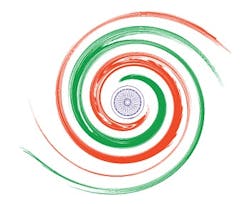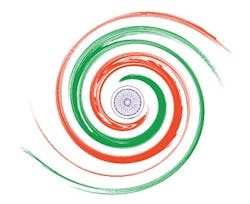Suez bags six water/wastewater contracts in India worth €67 million
SUEZ has won six municipal contracts, worth a total of €67 million, with the Bangalore Water & Sewerage Board (BWSSB) and the Public Health and Engineering Department of the Rajasthani State Government in India.
In Bangalore, three contracts, worth a total of €47 million include the construction and operation of two units of the TK Halli drinking water production plant, about 90km from Bangalore.
The contract provides for the construction and installation of a unit producing 300,000 m3/day and the rehabilitation of an existing unit that also produces 300,000 m3/day.
These 30-month projects will be followed by seven years spent operating the units, amounting to a total of €20 million of revenue for SUEZ. The Group has already built two units in the TK Halli plant, which it has been operating since 2009, producing more than 1,000,000 m3/day of drinking water.
Water is at the heart of the concerns of India's central government, which, in 2013, launched its second five-year plan, called AMRUT, to develop essential infrastructures, including access to water and wastewater treatment.
The €6 billion, five-year programme for urban development was announced to improve basic infrastructures (water, waste, transport, parks and gardens) in 500 cities with more than 100,000 inhabitants.
SUEZ has also won a contract to design, build and operate the Kengeri wastewater treatment plant, located south-west of Bangalore. Funded by the Japanese International Cooperation Agency (JICA), the plant, with a capacity of 60,000 m3/day, will treat the wastewater produced by more than 400,000 people.
The 30-month design and construction phases will be followed by a seven-year operations and maintenance contract, worth a total of €3 million.
The French company will also be tasked with detecting leaks in the 1,750 km distribution network in the north and east of the city, using helium gas technology. This 12-month contract, worth €4 million, was also signed with the Bangalore Water & Sewerage Board.
Meanwhile, the Public Health Engineering Department of the Rajasthani State Government in India has chosen SUEZ for three contracts, worth a total of €20 million, to design, build and operate 150 UCD®2 in three of the state's regions: Bikaner, Hanumangarh and Sri Ganganagar.
These contracts are part of the Rajasthani government's ambitious plan to extend water supplies to rural regions. The 150 units must be built over a two-year period, then operated by SUEZ for five years. The units will have a production capacity of between 500 m3/day and 3,000 m3/day.
These compact units developed by SUEZ can treat all types of surface or underground water to produce drinking water to the standards of the World Health Organisation (WHO). The treated water is sourced from the Indira Gandhi irrigation canal, one of the largest in the country.
The Group has been present in India for 30 years. It has designed and built more than 200 water treatment plants all over the country and currently operates 23 of them. These plants distribute more than 5,000,000 m3/day of drinking water to more than 44 million people every day.
###
Read more
Four desalination plants to help Chennai meet increasing water demand

